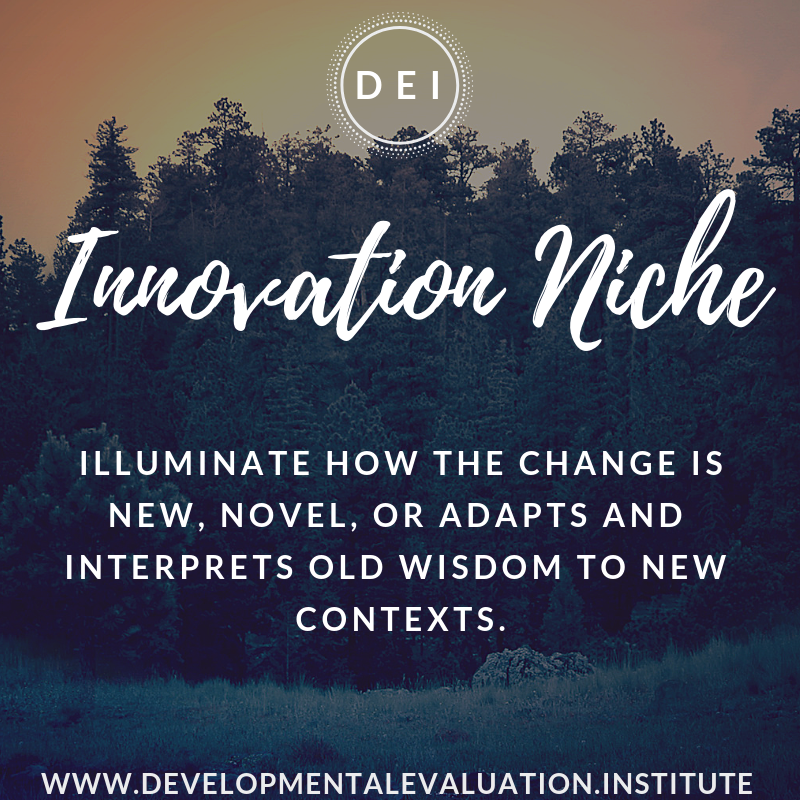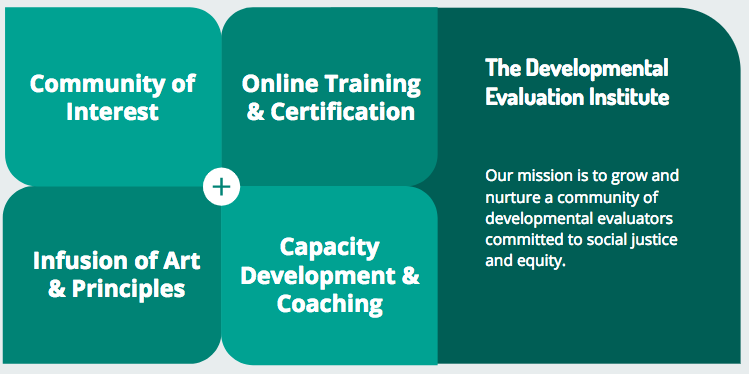Dear DEI community:
People tell us, “I feel alone when in developmental evaluation and wish I had a community of practice.” We hear you. Kate McKegg, Nan Wehipeihana and I are creating opportunities for developmental evaluators to connect in 2019. Please consider engaging in these different ways.
1. Attend our February 13-15 Convening, Getting to Grips With Developmental Evaluation, in Raglan, New Zealand: https://www.developmentalevaluation.institute/events/
2. Donate: Any contribute helps! https://www.developmentalevaluation.institute/donate/ Please note that we do not yet have tax exempt status.
3. Share your experience: We are looking for developmental evaluation examples in the form of blog posts, case studies, art work, music, photographs, public reports, and more. Email me directly if you have something to share.
4. Download the first even developmental evaluation e-anthology: https://www.developmentalevaluation.institute/eanthology/
5. Tell us what you need: Let us know what you want and need so we can consider the developmental evaluation community’s needs when developing workshops, courses and materials: https://www.developmentalevaluation.institute/dei-survey/
6. Follow us on Social Media: Twitter (@DE_Institute ), FaceBook (https://www.facebook.com/DevelopmentalEval/), and LinkedIn (https://www.linkedin.com/company/developmentalevaluationinstitute/)
7. Tag us when posting about developmental evaluation on social media: #DE_Institute, #DevelopmentalEval
8. Volunteer: Do you have a skill to contribute? Help us write a monthly newsletter, create social media posts, create online courses, manage the logistics of registrations, etc. Share your interest via our contact form. https://www.developmentalevaluation.institute/contact-us/
9. Help us get the word out: Share this email widely with colleagues! We invite leaders, funders, community members, students, and more to get involved. Developmental evaluation isn’t just for evaluators.
10. Stay in touch: Complete our contact form so we can stay in touch: https://www.developmentalevaluation.institute/contact-us/
Happy New Year!
Nora, Kate & Nan


















